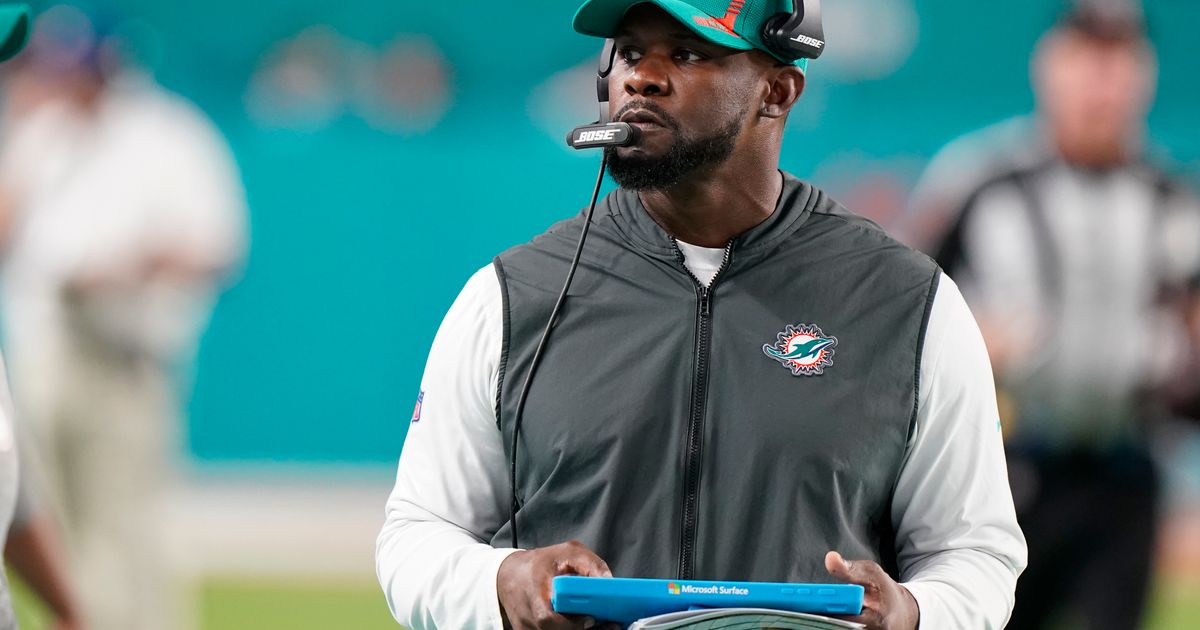
NEW YORK (AP) — NFL lawyers are urging a New York judge to change her mind and agree to let racial discrimination claims against the league and its teams go to arbitration rather than trial.
In written arguments late Wednesday, the lawyers said Judge Valerie E. Caproni in Manhattan should reverse her recent decision finding that some claims by NFL Coach Brian Flores can go to trial.
Flores, the new defense coordinator for the Minnesota Vikings, sued the league and three teams last year, saying the NFL was “rife with racism,” particularly in its hiring and promotion of Black coaches.
Caproni ruled on March 1 that discrimination claims by two other Black coaches, Steve Wilks and Ray Horton, must go to arbitration. She let claims Flores made against the Miami Dolphins go to arbitration. Flores made some of his most sensational claims against the team that fired him early last year after he led the Dolphins to a 24-25 record over three years.
Earlier this week, lawyers for the coaches asked her to reverse portions of that ruling allowing arbitration, saying that proceedings in which NFL Commissioner Roger Goodell would likely serve as the arbiter would set a dangerous precedent for businesses nationwide that will be motivated to emulate the NFL’s unfair arbitration practices.
In papers signed by attorney Loretta E. Lynch — a former U.S. attorney general — the NFL, the Denver Broncos, the Houston Texans and the New York Giants asked that the judge change her mind and force all of the claims made by Flores into arbitration.
“We do so only because we believe that the Court inadvertently overlooked important controlling authorities on two separate issues that were not previously briefed by the parties, leading to two clear errors of law that, if corrected, might reasonably be expected to alter the Court’s conclusion,” the NFL and its teams asserted.
In her decision two weeks ago, Caproni said the claims made by Flores had shined “an unflattering spotlight on the employment practices of National Football League” teams.
“Although the clear majority of professional football players are Black, only a tiny percentage of coaches are Black,” she wrote.